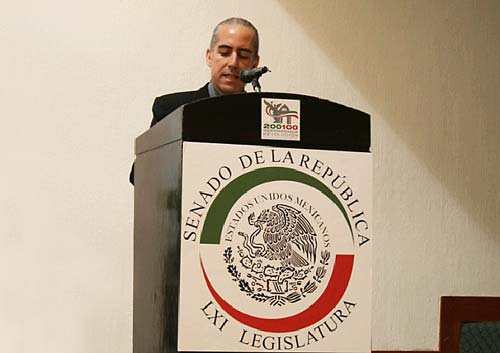Mexican wildlife law assessed 10 years on
Mexico City, Mexico, 25th August 2010—the Mexican Senate met last week to review the country’s General Wildlife Law, a decade after it was first introduced.

The senate forum invited expert comment from a wide cross-section of special interest groups and organizations, including academia, non-governmental organizations (including TRAFFIC and WWF), wildlife users (such as hunters), producers and entrepreneurs.
Adrian Reuter addressed the forum on behalf of TRAFFIC and WWF.
His testimony considered the creation of the General Wildlife Law in 2000 a positive move, encompassing the concept of sustainable use of wildlife resources for the benefit of local communities and natural habitats through a system of Wildlife Management and Use Units (UMAs)
However, while recognizing the importance of the UMA concept, its implementation was still far from being adequate, with insufficient resources for control, monitoring and enforcement activities, and a significant lack of knowledge among land owners and potential beneficiaries of such schemes.
Reuter also noted that several modifications have been made to the law, which could hinder sustainable use of wild resources. For example, it should be possible to establish closed seasons for certain species rather than blanket bans on their use.
He also noted the need for improved enforcement action to combat illegal wildlife trade and the need for more involvement of civil society representatives in discussions with legislators in formulating wildlife law.
“This forum is a good example of the type of communication that needs to be strengthened between those involved in wildlife research, management, sustainable use and conservation in Mexico with legislators and authorities, so as to improve existing laws, and address the problems, gaps and needs that affect their implementation” said Adrian Reuter of TRAFFIC Mexico.
“However, there needs to be more input from enforcement authorities, judges and prosecutors.”
More than 80 participants were present at the meeting, which was held at the request of Senator Guillermo Tamborrel, President of the Environment, Natural Resources and Fisheries Commission.
The forum will continue on the World Wide Web until mid November at: http://www.elecologista.com.mx/



